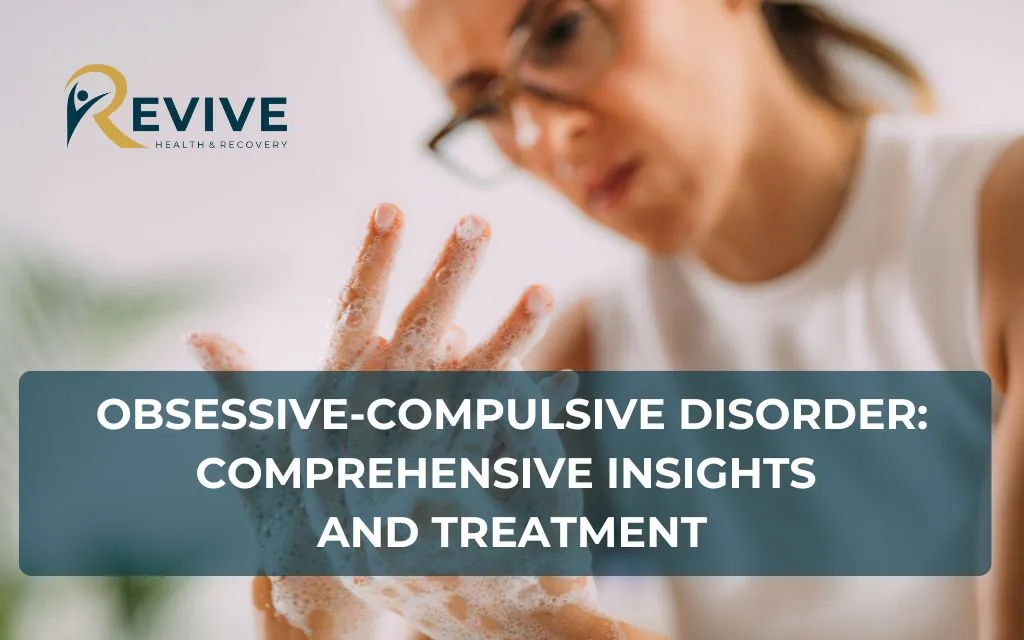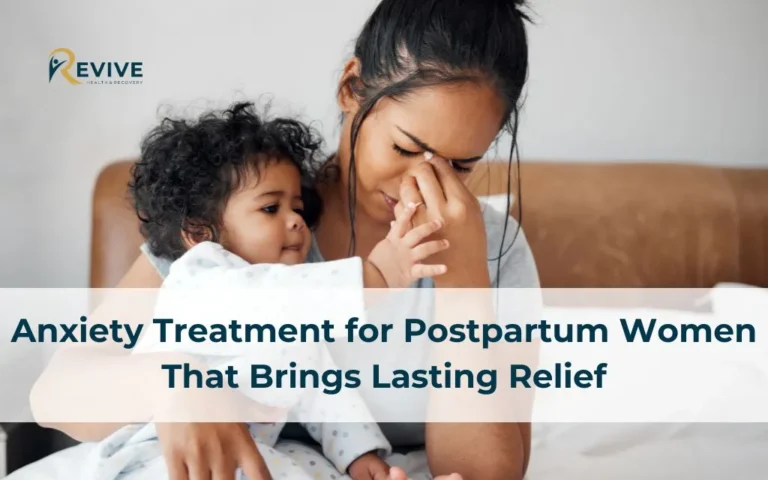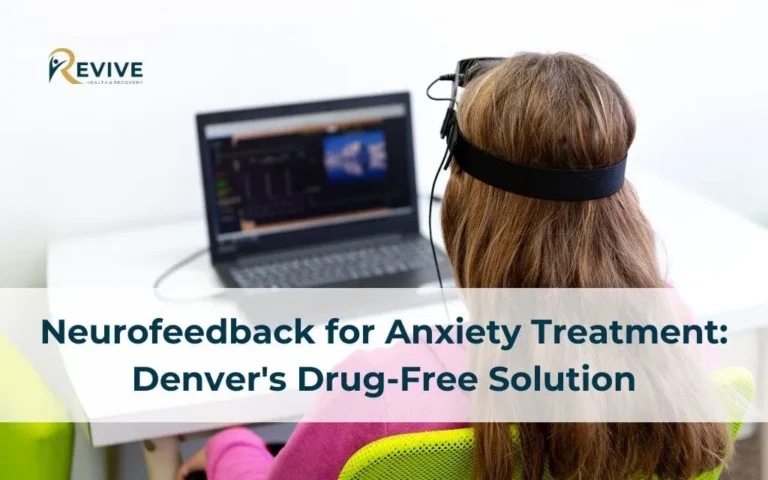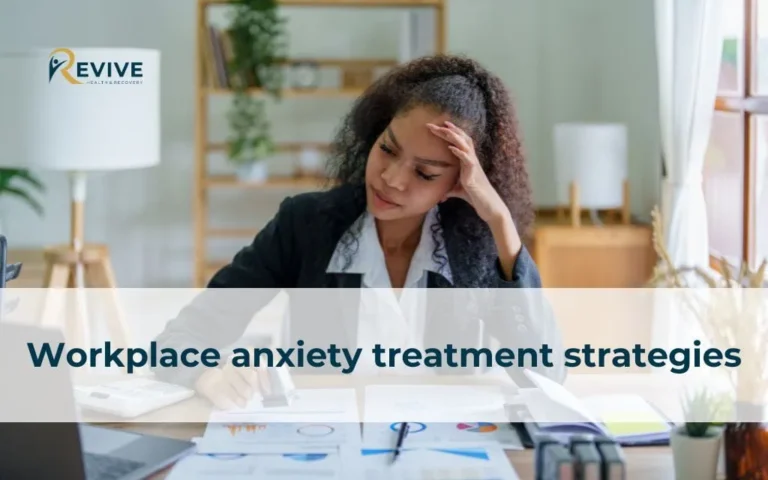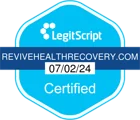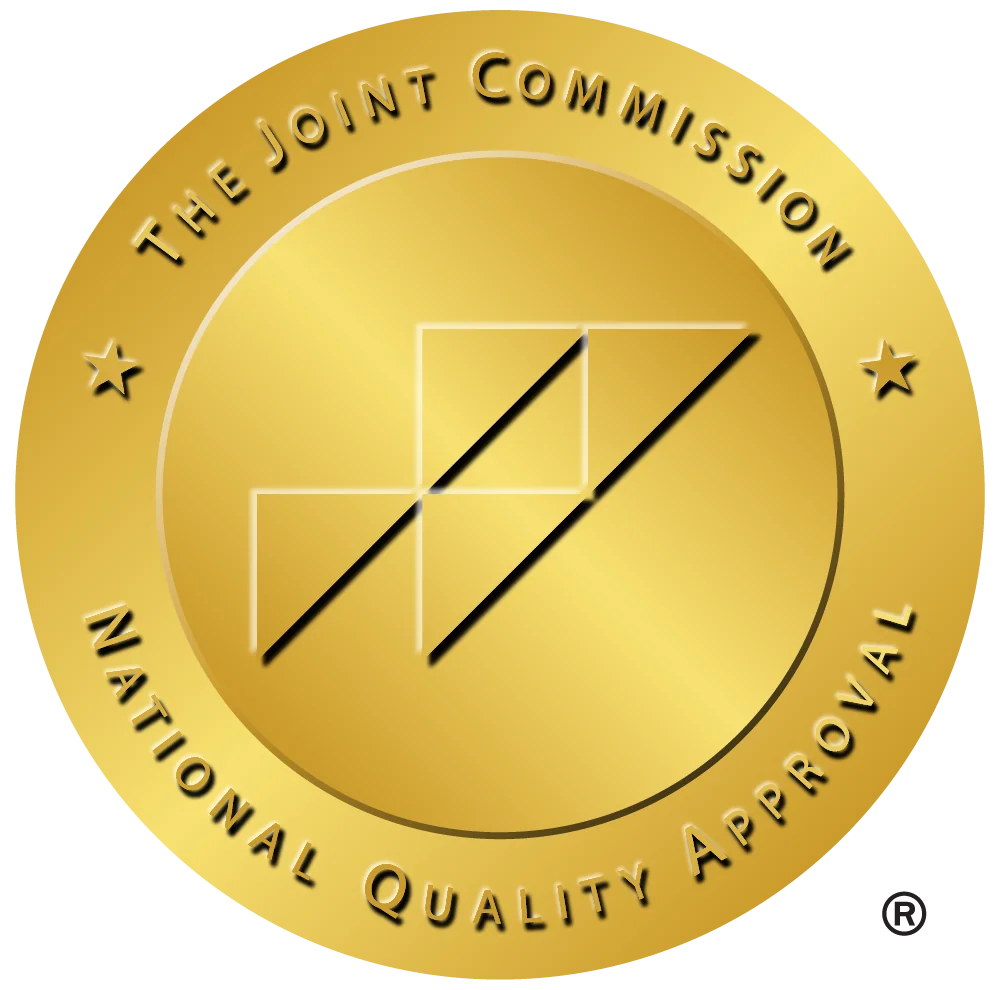Obsessive-Compulsive Disorder (OCD) affects millions, causing distressing thoughts and repetitive behaviors that can impact daily life. In Colorado, the need for effective mental wellness solutions to manage OCD is more critical than ever. Understanding the nature of OCD, its symptoms, and available treatment options is the first step toward managing this condition. Whether you’re seeking therapy, medication, or a combination of both, there are compassionate and effective solutions to help you regain control. In this article, we’ll explore what OCD is, the latest treatment options, and how Colorado residents can access the support they need to live fulfilling lives despite the challenges of OCD.
What is Obsessive-Compulsive Disorder? Understanding the Basics
Definition and Diagnostic Criteria for OCD
Obsessive-Compulsive Disorder (OCD) is a chronic mental health condition characterized by persistent, unwanted intrusive thoughts (obsessions) and repetitive behaviors or mental acts (compulsions) that individuals feel driven to perform. These obsessions and compulsions can significantly interfere with daily activities and cause substantial distress.
According to the Diagnostic and Statistical Manual of Mental Disorders (DSM-5), OCD is categorized as an anxiety-related disorder with specific criteria for diagnosis. To receive an OCD diagnosis, individuals must experience obsessions, compulsions, or both, that consume more than one hour daily or cause significant distress or impairment in social, occupational, or other important areas of functioning.
Common Symptoms and How They Manifest
OCD symptoms typically fall into two categories: obsessions and compulsions. Obsessions are persistent, intrusive thoughts, urges, or images that cause anxiety or distress. Compulsions are repetitive behaviors or mental acts that individuals feel driven to perform in response to obsessions or according to rigid rules.
Common obsessions include:
- Fear of contamination or germs
- Unwanted or taboo thoughts about harm, sex, or religion
- Need for symmetry, exactness, or order
- Excessive doubt and need for reassurance
- Fear of losing or not having things you might need
Common compulsions include:
- Excessive cleaning or handwashing
- Ordering and arranging things in a particular way
- Repeatedly checking things (doors, locks, appliances)
- Counting, tapping, repeating words silently
- Mental rituals like praying or mentally reviewing events
The Four Main Categories of OCD Presentations
While OCD can manifest in numerous ways, research has identified four primary dimensions or categories:
- Contamination/Cleaning: Fears of dirt, germs, or contaminants leading to excessive washing, cleaning, or avoidance behaviors
- Doubt/Checking: Persistent doubts about whether one has performed an action correctly, leading to repeated checking
- Symmetry/Ordering: Need for things to be arranged in a “just right” manner, often accompanied by counting or arranging compulsions
- Unacceptable/Taboo Thoughts: Intrusive thoughts of a violent, sexual, or religious nature, typically accompanied by mental rituals or reassurance-seeking
Beyond these four primary categories, researchers at the CU Anschutz OCD Program in Denver have identified less common forms that include somatic OCD (hyperawareness of bodily functions), existential OCD (obsessions about philosophical questions), and sensorimotor OCD (fixation on automatic bodily processes like blinking or breathing).
How OCD Differs from Normal Worry and Anxiety
While everyone experiences worry and occasional anxiety, OCD differs in several important ways:
- Intensity and Duration: OCD thoughts are persistent, intrusive, and difficult to dismiss
- Recognition: Most people with OCD recognize their thoughts are irrational, yet still feel compelled to respond
- Distress Level: OCD causes significant distress and interferes with daily functioning
- Ritualistic Behaviors: OCD leads to time-consuming rituals or mental acts aimed at reducing anxiety
- Neurological Basis: OCD involves dysregulation in specific brain regions including the prefrontal cortex, basal ganglia, and thalamus
Unlike general anxiety or perfectionism, where concerns may be grounded in realistic situations, OCD obsessions often focus on unlikely or impossible scenarios and lead to compulsive behaviors that provide only temporary relief.
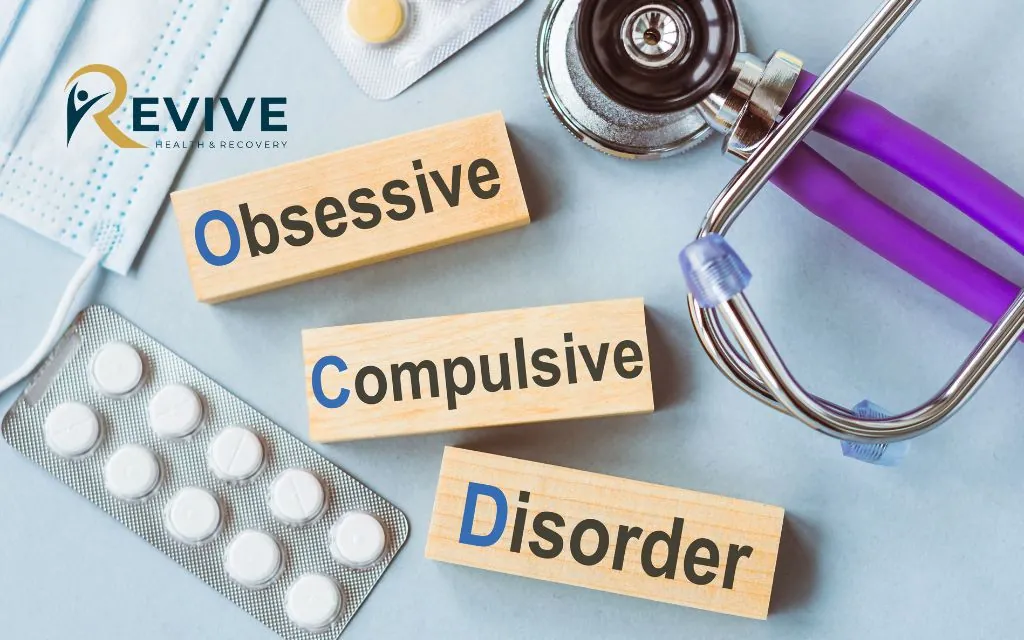
OCD in Colorado: Statistics and Local Impact
Prevalence of OCD in Denver and Colorado Communities
Approximately 1.2% of U.S. adults had OCD in the past year, with a lifetime prevalence of 2-3%. This translates to thousands of Colorado residents living with OCD. In the Denver-Aurora-Broomfield metropolitan area, mental health conditions appear at rates higher than the national average, with a significant treatment gap.
The Denver-specific mental health landscape features a 15% rate of adults reporting 8+ days of poor mental health per month. While Colorado-specific OCD statistics are limited, we know that the mental health challenges in the state create additional barriers for those seeking OCD treatment.
Mental Health Rankings and Access Challenges in Colorado
Colorado’s overall mental health ranking has taken a concerning turn, dropping from 30th in 2023 to 46th in 2024 nationally. This represents the second-largest year-over-year decline in mental health care access among all states. Colorado residents with OCD often face greater challenges in accessing care due to the state’s rural geography and provider shortages.
Despite these challenges, Colorado law mandates that health insurance companies cover mental health conditions at parity with physical health conditions, which theoretically should help those seeking OCD treatment. However, implementing this parity in practice remains inconsistent, creating additional hurdles for those seeking specialized care.
How Colorado’s Outdoor Culture Intersects with OCD Treatment
Colorado’s unique outdoor recreational opportunities are increasingly being incorporated into Exposure and Response Prevention (ERP) therapy for OCD. This integration of nature and evidence-based treatment represents an innovative approach that leverages the state’s natural assets.
Some OCD treatment centers in Colorado are incorporating the region’s natural environment into therapy through outdoor-based exposure sessions. These nature-integrated approaches can provide unique contexts for exposure exercises and opportunities for mindfulness practices that complement traditional OCD treatments.
The Gateway Institute’s Denver location offers a distinctive OCD treatment program focused on both in-office and community-based exposure therapy, taking advantage of Colorado’s diverse environments to create meaningful treatment scenarios.
Real Stories: Living with OCD in the Mile High City
Denver residents with OCD face unique challenges navigating the city’s social, professional, and physical environments. From managing contamination fears in a bustling urban center to addressing checking compulsions in high-altitude conditions, the experience of OCD in Denver has distinctive characteristics.
Every year, the Denver OCD Walk brings together those affected by OCD to raise awareness and reduce stigma. This community event, sponsored by the International OCD Foundation, creates visibility for a condition that often remains hidden and provides connection for those who may feel isolated in their struggle.
The community-building efforts around OCD in Denver demonstrate both the prevalence of the condition and the growing recognition of the need for support systems beyond clinical treatment.
Evidence-Based Treatment Options for OCD in Colorado
Exposure and Response Prevention (ERP): The Gold Standard Treatment
Exposure and Response Prevention (ERP) therapy is considered the gold standard treatment for OCD. This specialized form of Cognitive Behavioral Therapy involves gradually exposing individuals to situations that trigger their obsessions while preventing the accompanying compulsive behaviors.
In Denver, several specialized clinics offer ERP therapy, including the Gateway Institute, Rogers Behavioral Health, and Anxiety Solutions of Denver. These providers employ therapists trained specifically in this evidence-based approach that has demonstrated effectiveness rates of 60-80% for those who complete the treatment.
ERP therapy helps individuals break the cycle of obsessions and compulsions by teaching them that anxiety will naturally decrease over time without performing compulsions. This process, called habituation, helps rewire the brain’s response to anxiety triggers.
Medication Options and Management in Denver
Selective Serotonin Reuptake Inhibitors (SSRIs) are the primary medication option for treating OCD. These medications help regulate brain chemistry, particularly serotonin levels, which are often dysregulated in OCD.
Several Denver-area psychiatrists specialize in medication management for OCD, working in conjunction with therapists providing ERP. The CU Anschutz OCD Program offers comprehensive medication management services specifically tailored for OCD patients.
Medication is often most effective when combined with therapy, particularly ERP. Research indicates that this combination approach yields better long-term outcomes than medication alone for many individuals with OCD.
Intensive Outpatient Programs (IOPs) Available in Colorado
For individuals with more severe OCD symptoms, Intensive Outpatient Programs (IOPs) provide a higher level of care while still allowing patients to live at home. The CU Anschutz OCD and Anxiety Intensive Outpatient Program is specifically designed for treating OCD with evidence-based approaches.
These intensive programs typically involve multiple sessions per week, combining individual therapy, group therapy, and sometimes family sessions. Rogers Behavioral Health in Denver offers specialized intensive outpatient care for adults, adolescents, and children struggling with OCD.
IOPs are particularly beneficial for individuals who need more support than weekly outpatient therapy but do not require inpatient hospitalization. They provide structured treatment in a condensed timeframe, often accelerating progress.
Emerging Treatments: Deep TMS and Other Alternatives in Denver
Deep Transcranial Magnetic Stimulation (TMS) for OCD is available in Denver as an FDA-cleared alternative treatment. The TMS Center of Colorado offers this non-invasive procedure that uses magnetic fields to stimulate nerve cells in brain regions associated with OCD.
This treatment option is particularly valuable for individuals who haven’t responded adequately to traditional treatments like ERP and medication. TMS therapy is typically administered in a series of sessions over several weeks.
Additionally, some Colorado providers offer alternative or complementary treatments like mindfulness-based approaches and forest bathing, leveraging the state’s natural environments as therapeutic settings. These approaches may complement, but should not replace, evidence-based treatments like ERP and medication when indicated.

Finding the Right OCD Care in Denver and Beyond
Leading OCD Treatment Centers in Colorado
Colorado offers several specialized treatment centers focused on Obsessive-Compulsive Disorder (OCD) care:
- CU Anschutz OCD Program: Offers comprehensive treatment including individual therapy, medication management, and an intensive outpatient program specifically for OCD
- The Gateway Institute: Denver location provides specialized OCD treatment with a focus on exposure therapy in both clinical and real-world settings
- Rogers Behavioral Health: Offers evidence-based OCD treatment for adults, adolescents, and children with various levels of care intensity
- Anxiety Solutions of Denver: Specializes in treating anxiety disorders and OCD using evidence-based approaches
- Children’s Hospital Colorado OCD Program: Provides specialized care for children and adolescents with OCD
Each of these centers employs specialists trained specifically in OCD treatment, which is crucial as general mental health providers may not have the specialized training needed for effective OCD care.
Questions to Ask When Choosing an OCD Specialist
When seeking treatment for OCD, it’s important to find a provider with specific expertise. Consider asking potential providers these questions:
- What specific training do you have in treating OCD?
- Do you use Exposure and Response Prevention (ERP) therapy?
- How many OCD patients have you treated?
- What is your approach to medication if needed?
- How do you measure progress during treatment?
- Do you offer both in-office and community-based exposures?
- What is your experience with my specific OCD symptoms?
- How do you involve family members in the treatment process?
Finding a provider who specializes in OCD treatment, particularly one trained in ERP, will significantly increase your chances of successful treatment outcomes.
Insurance Coverage and Financial Considerations in Colorado
Colorado law mandates that health insurance companies cover mental health conditions, including Obsessive-Compulsive Disorder, at parity with physical health conditions. This means that if your insurance covers medical conditions, it must also provide equivalent coverage for OCD treatment.
The CU Anschutz OCD Program accepts most private insurance plans, Medicare, and most Medicaid RAEs. Other treatment centers like Rogers Behavioral Health and The Gateway Institute also work with various insurance providers, though coverage details vary by plan.
If you have questions about insurance coverage or treatment costs, contact Revive Health Recovery at (303) 268-4655 for assistance navigating these complex systems. Our team can help you understand your benefits and explore options for accessing quality OCD care.
Telehealth Options for Rural Colorado Residents
For Colorado residents in rural areas, accessing specialized OCD treatment can be challenging due to geographic distance from major treatment centers primarily located in Denver and other urban areas. Telehealth has emerged as a valuable solution to this access barrier.
Many OCD specialists in Colorado now offer virtual therapy sessions, allowing individuals to receive evidence-based treatment regardless of their location. Research has shown that ERP delivered via telehealth can be as effective as in-person treatment for many individuals.
The COVID-19 pandemic accelerated the adoption of telehealth services, and insurance coverage for these services has expanded. However, some aspects of treatment, particularly certain types of exposure exercises, may still require creative adaptation in a virtual format.
Supporting Someone with OCD: A Colorado Guide for Families
Understanding the Family Impact of OCD
Obsessive-Compulsive Disorder affects not only the individual diagnosed but also their family members and support system. Family members often become inadvertently involved in OCD rituals, providing reassurance or helping with compulsions in an attempt to reduce their loved one’s distress. This pattern, known as accommodation, can actually reinforce OCD symptoms over time.
Common ways families may accommodate OCD include:
- Providing excessive reassurance
- Participating in checking rituals
- Modifying family routines to accommodate OCD symptoms
- Taking over responsibilities the person with OCD finds difficult
- Facilitating avoidance of anxiety-provoking situations
Learning to recognize and reduce accommodation is often an important part of the treatment process for families affected by Obsessive-Compulsive Disorder.
Colorado-Based Support Groups and Resources
Several support resources are available for Colorado families affected by Obsessive-Compulsive Disorder:
- Boulder OCD Support Group: Offers support for adults with OCD and their family members
- NAMI Colorado: Provides education, advocacy, and support groups for families affected by mental health conditions
- OCD Support Groups at Ignite Counseling Colorado: Community-focused groups that combine education with peer support
- Denver OCD Walk: Annual event that raises awareness and connects the OCD community
Additionally, many OCD treatment providers in Colorado offer family education sessions and resources specific to supporting loved ones with OCD. These can be invaluable in helping families understand the condition and learn effective support strategies.
Communication Strategies for Loved Ones
Effective communication with someone experiencing OCD requires understanding, patience, and specific strategies:
- Validate feelings without reinforcing OCD: “I can see you’re feeling anxious, and that’s tough” rather than reassuring about specific OCD fears
- Avoid judgment or criticism: OCD behaviors are not choices but symptoms of a neurobiological condition
- Establish clear boundaries: Determine which behaviors you can and cannot support
- Focus on the person, not the disorder: Remember that OCD is only one aspect of your loved one’s identity
- Use supportive language: Encourage facing fears rather than avoiding them
Many Colorado treatment centers offer family therapy or coaching sessions that can help develop these communication skills in the context of your specific situation.
Self-Care for Caregivers in the Obsessive-Compulsive Disorder Journey
Supporting someone with OCD can be emotionally challenging, making self-care essential for family members and caregivers. Colorado’s natural environment offers unique opportunities for caregiver self-care:
- Take advantage of Colorado’s outdoor spaces for physical activity and stress reduction
- Join a support group specifically for family members of those with OCD
- Set boundaries around OCD-related requests and behaviors
- Seek your own therapy if needed to process the challenges
- Maintain your own interests, hobbies, and social connections
Remember that taking care of your own mental health is not selfish—it’s necessary to sustainably support your loved one with OCD over the long term.

Daily Life with OCD: Coping Strategies for Colorado Residents
Mindfulness Approaches Adapted for OCD Management
Mindfulness practices can complement evidence-based Obsessive-Compulsive Disorder treatments by helping individuals develop awareness of their thoughts without automatically responding to them. Several Colorado providers have developed mindfulness approaches specifically adapted for OCD:
- Learning to observe obsessive thoughts without engaging with them
- Developing present-moment awareness to interrupt rumination cycles
- Building self-compassion around difficult OCD experiences
- Using body scan techniques to reduce physiological anxiety responses
- Incorporating formal meditation practices into daily routines
These mindfulness strategies don’t replace ERP therapy but can enhance its effectiveness and provide additional coping tools for managing OCD symptoms in daily life.
Leveraging Colorado’s Natural Environment in Recovery
Colorado’s diverse natural settings provide unique opportunities for integrating outdoor experiences into OCD recovery. Some innovative approaches include:
- Conducting exposure exercises in natural environments that trigger OCD symptoms
- Using hiking and outdoor activities to practice tolerating uncertainty
- Forest bathing (spending mindful time in forest environments) to reduce overall anxiety
- Incorporating Colorado’s outdoor recreational activities into behavioral activation for those with comorbid depression
- Building community connections through outdoor group activities with others managing OCD
The Gateway Institute and other Colorado treatment providers have begun incorporating these nature-based approaches into comprehensive OCD treatment plans, taking advantage of the state’s natural resources.
Building a Support Network in Denver
Creating a strong support network is crucial for long-term Obsessive-Compulsive Disorder management. Denver offers several avenues for building these connections:
- Local OCD support groups that meet regularly in the Denver area
- Online communities specifically for Colorado residents with OCD
- Participation in the annual Denver OCD Walk and related events
- Peer support programs through organizations like NAMI Colorado
- Connections formed through intensive treatment programs that continue after formal treatment ends
Having supportive people who understand OCD can reduce feelings of isolation and provide practical assistance during difficult periods. Mental health providers can often help connect individuals to appropriate support resources in their communities.
Workplace and School Accommodations for OCD
Obsessive-Compulsive Disorder can create challenges in work and educational environments. Colorado residents with OCD may benefit from knowing their rights and the accommodations available:
- Under the Americans with Disabilities Act, OCD qualifies as a disability that may entitle individuals to reasonable workplace accommodations
- Students with OCD may qualify for accommodations through Section 504 plans or Individualized Education Programs (IEPs)
- Common accommodations include flexible scheduling, extended time for tasks, private spaces for breaks, and modified assignment formats
- Colorado’s employment laws provide additional protections for workers with mental health conditions
Working with a mental health provider to document symptoms and recommended accommodations can facilitate this process. Organizations like the Rocky Mountain ADA Center can provide guidance on navigating accommodation requests in Colorado.

Beyond Treatment: The Path to Recovery in Colorado
Signs of Progress in Obsessive-Compulsive Disorder Treatment
Recovery from OCD is typically a gradual process with several recognizable milestones:
- Decreasing time spent on OCD rituals and obsessions
- Increasing willingness to engage with anxiety-provoking situations
- Improved ability to recognize and label OCD thoughts as they arise
- Greater resistance to compulsive urges
- Reclaiming activities previously avoided due to OCD
- Reduction in overall distress and improvement in quality of life
Progress is rarely linear, and temporary setbacks are a normal part of recovery. The goal of treatment is not the complete absence of intrusive thoughts but developing a different relationship with them and reducing their impact on daily functioning.
Maintaining Gains and Preventing Relapse
After formal treatment ends, several strategies can help maintain progress and prevent relapse:
- Continuing to practice ERP principles independently
- Developing a written relapse prevention plan with specific strategies
- Identifying early warning signs of symptom worsening
- Maintaining connection with support groups and the OCD community
- Scheduling periodic “booster” therapy sessions, especially during high-stress periods
- Consistent use of medication if prescribed as part of treatment
Many Colorado Obsessive-Compulsive Disorder (OCD) specialists offer specific relapse prevention planning as part of the treatment process, helping individuals develop personalized strategies based on their particular OCD manifestations.
Living a Full Life with OCD in Colorado
Recovery from Obsessive-Compulsive Disorder (OCD) doesn’t necessarily mean complete symptom elimination but rather learning to live a valued life despite occasional symptoms. Colorado offers numerous opportunities for building a fulfilling life while managing OCD:
- Engaging with Colorado’s abundant outdoor recreation as part of ongoing anxiety management
- Participating in local community events and activities previously avoided due to OCD
- Pursuing educational and career goals with appropriate accommodations if needed
- Developing meaningful relationships and social connections
- Finding purpose through helping others, perhaps through OCD advocacy or peer support
Many individuals find that the skills learned through OCD treatment—such as tolerating uncertainty and managing difficult thoughts and feelings—benefit many other areas of life beyond OCD management.
Advocacy and Reducing Stigma in Colorado Communities
Contributing to OCD awareness and advocacy can be an empowering part of the recovery journey. Colorado offers several channels for involvement:
- Participating in or volunteering for the annual Denver OCD Walk
- Sharing personal experiences (as comfortable) to educate others about OCD
- Supporting legislation related to mental health parity and access
- Engaging with organizations like NAMI Colorado or the International OCD Foundation
- Advocating for better OCD education in schools and healthcare settings
These activities not only help reduce stigma in Colorado communities but can also provide a sense of purpose and meaning for individuals who have struggled with OCD, transforming personal challenges into opportunities to help others.
FAQs about Obsessive-Compulsive Disorder (OCD)
What makes OCD different from just being particular or perfectionistic?
OCD involves unwanted, intrusive thoughts that cause significant distress and interfere with daily functioning, unlike perfectionism which is often ego-syntonic (feels aligned with one’s sense of self). While many people enjoy order or cleanliness, OCD compulsions are driven by intense anxiety and fear rather than preference. At Revive Health Recovery, we help clients understand this distinction and provide appropriate treatment for true OCD symptoms.
Does insurance in Colorado cover OCD treatment?
Yes, Colorado state law requires that health insurance companies cover services for mental health conditions, including OCD, at parity with physical health conditions. Coverage details vary by plan, so it’s important to verify your specific coverage. For questions about insurance coverage for OCD treatment at Revive Health Recovery, please call us at (303) 268-4655 for personalized assistance.
What is the success rate of ERP therapy for OCD?
Studies indicate that approximately 60-80% of individuals with OCD experience significant symptom reduction after completing ERP therapy. Success rates vary based on factors such as symptom severity, treatment adherence, and ongoing support. At Revive Health Recovery, our specialized approach to ERP therapy is designed to maximize positive outcomes through personalized treatment plans and ongoing support.
Are there specialized OCD treatment programs for teenagers in Denver?
Yes, several facilities in Denver offer specialized OCD treatment for teenagers, including Children’s Hospital Colorado’s OCD Program and Rogers Behavioral Health. Revive Health Recovery also provides customized treatment approaches for adolescents with OCD, tailoring ERP therapy to address the unique developmental needs of teens while incorporating family involvement and school coordination components.
Can OCD occur alongside other mental health conditions?
Yes, approximately 90% of people with OCD have at least one other comorbid condition. The most common co-occurring conditions include anxiety disorders, depression, ADHD, and tic disorders. At Revive Health Recovery, our comprehensive assessment process identifies all relevant conditions, and our treatment plans address both OCD and any co-occurring conditions for the most effective outcomes. For more information about our integrated approach, call (303) 268-4655.
5 Reasons to Choose Revive Health Recovery for OCD Treatment
Specialized OCD Expertise
Our team includes specialists specifically trained in evidence-based OCD treatments, including Exposure and Response Prevention (ERP) therapy. We stay current with the latest research and approaches to ensure you receive the most effective care.
Personalized Treatment Plans
We recognize that OCD manifests differently for each person. Our comprehensive assessment process allows us to develop individualized treatment strategies tailored to your specific OCD subtype, symptoms, and life circumstances.
Integrated Approach to Comorbid Conditions
Recognizing that 90% of individuals with OCD have co-occurring conditions, our treatment addresses both OCD and related issues like anxiety, depression, or trauma for truly comprehensive care.
Family-Inclusive Treatment
We provide education, support, and guidance for family members, recognizing their crucial role in the recovery process. Our approach helps families learn effective ways to support their loved ones without enabling OCD symptoms.
Ongoing Support for Lasting Recovery
Our commitment extends beyond acute symptom reduction to long-term wellness. We provide relapse prevention planning, maintenance strategies, and ongoing support to help you maintain gains and continue progress after formal treatment ends.
Take the First Step Toward Freedom from OCD
Living with Obsessive-Compulsive Disorder can feel overwhelming, but if you’re finding Denver Expert Therapy Support, there is always effective treatment and support are available right here in Denver. At Revive Health Recovery, we combine evidence-based approaches with compassionate care to help you reclaim your life from OCD.
Our specialized team understands the unique challenges of OCD and offers personalized treatment plans to address your specific symptoms and needs. Whether you’re struggling with contamination fears, intrusive thoughts, checking rituals, or any other OCD manifestation, we’re here to help you develop the skills to manage symptoms and build a fulfilling life.
Don’t let OCD control another day of your life. Contact us now to schedule a confidential assessment and learn more about how our OCD treatment program can help you or your loved one.
